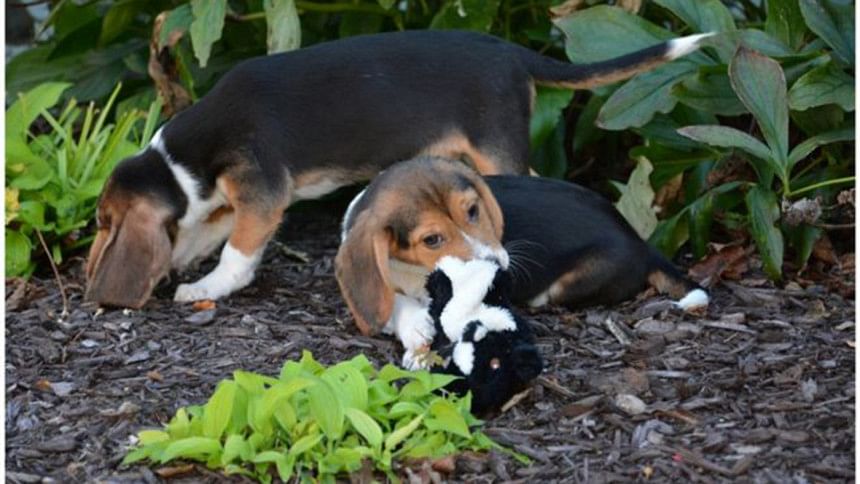World's first IVF puppies born

The world's first IVF puppies have been born after years of attempts, say scientists in the US.
The in-vitro fertilisation advance paves the way for conserving endangered breeds and could help in the fight against human and animal diseases, say researchers at Cornell University.
The seven beagle and cross-bred beagle-cocker spaniel puppies were born to a surrogate mother.
They were all from the same litter but have three sets of parents.
Frozen embryos were implanted in a female dog using techniques similar to those used in human fertility clinics.
Problems with freezing embryos have caused difficulties in the past, but the group say they have perfected the technique.
Lead researcher Dr Alex Travis, from Cornell's college of veterinary medicine, said: "We have seven normal happy healthy puppies."
He added: "Since the mid-1970s, people have been trying to do this in a dog and have been unsuccessful.
"Now we can use this technique to conserve the genetics of endangered species."
The researchers say IVF is a powerful tool to help endangered species of dog such as the African wild dog.
It could also be used in the study of inherited human and dog diseases.
Dogs share many diseases with humans - almost twice as many as for any other species.
The research, published in the journal PLoS One, has been described as a "major step forward" in veterinary medicine.
Prof David Argyle, head of the school of veterinary medicine at the University of Edinburgh, which was not part of the study, said the new techniques would enhance understanding of inherited diseases.
"Importantly, it is becoming apparent that dogs and humans share many common biology, diseases and syndromes, and it is likely that these new techniques could have significant benefit for the study of human diseases as well as canine diseases," he added.
The puppies were born in June.
Their existence was kept secret until the findings were formally published to the scientific world this week.

 For all latest news, follow The Daily Star's Google News channel.
For all latest news, follow The Daily Star's Google News channel. 








Comments